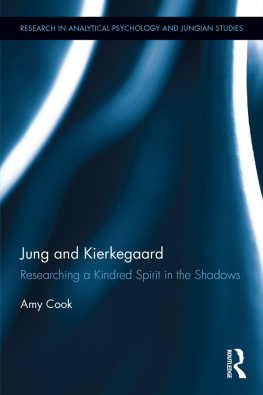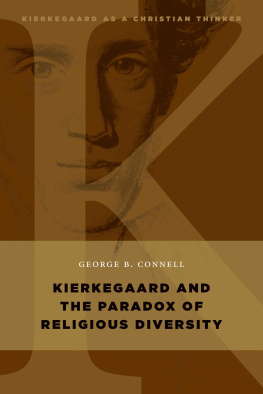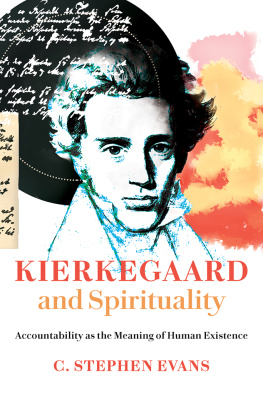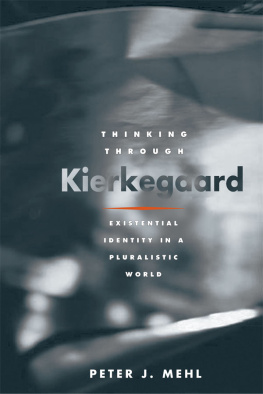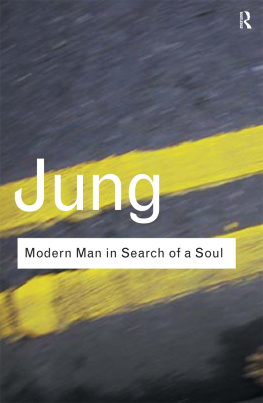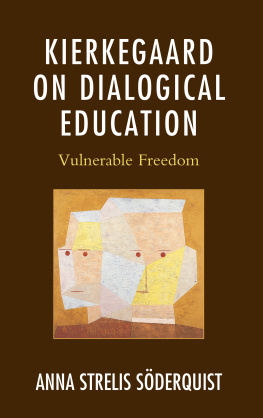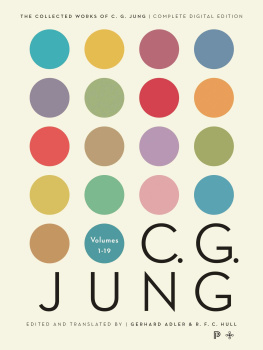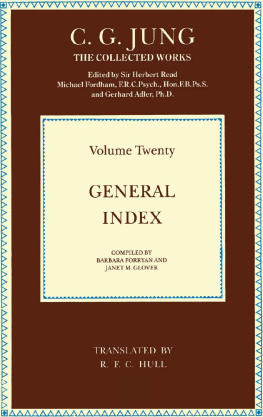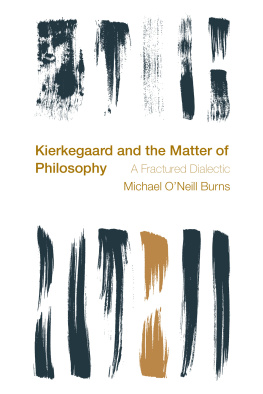Given the similarity of their work and experiences that were common to both of their personal biographies, particularly the relationship that each had with his father, one might expect Jung to have found in Kierkegaard a kindred spirit. Yet this was not the case, and Jung viewed Kierkegaard with great scorn. That there exists such a strong comparison and extensive overlap in the life and thought of these towering figures of psychology and philosophy leads us to question why it is that Jung so strongly rejected Kierkegaard. Such hostility is particularly fascinating given the striking similarity that Jungs own analytical psychology bears to the Christian psychology upheld by Kierkegaard.
Cooks thought-provoking book fills a very real gap in Jungian scholarship and is the first attempt to undertake a direct comparison between Jung and Kierkegaards models of development. It is therefore essential reading for academics and postgraduate students with an interest in Jungian and Kierkegaard scholarship, as well as psychology, philosophy and religion more generally.
Research in Analytical Psychology and Jungian Studies
Series Advisor:
Andrew Samuels,
Professor of Analytical Psychology, Essex University, UK.
The Research in Analytical Psychology and Jungian Studies series features research-focused volumes involving qualitative and quantitative research, historical/archival research, theoretical developments, heuristic research, grounded theory, narrative approaches, collaborative research, practitioner-led research, and self-study. The series also includes focused works by clinical practitioners, and provides new research informed explorations of the work of C. G. Jung that will appeal to researchers, academics, and scholars alike.
Books in this series
Eros and Economy
Jung, Deleuze, Sexual Difference
Barbara Jenkins
Towards a Jungian Theory of the Ego
Karen Evers-Fahey
A Japanese Jungian Perspective on Mental Health and Culture
Wandering Madness
Iwao Akita
Translated by Waka Shibata and Kittredge Stephenson
Jung and Kierkegaard
Researching a Kindred Spirit in the Shadows
Amy Cook
Jung and Kierkegaard
Researching a Kindred Spirit in the Shadows
Amy Cook

First published 2018
by Routledge
2 Park Square, Milton Park, Abingdon, Oxon OX14 4RN
and by Routledge
711 Third Avenue, New York, NY 10017
Routledge is an imprint of the Taylor & Francis Group, an informa business
2018 Amy Cook
The right of Amy Cook to be identified as author of this work has been asserted by her in accordance with sections 77 and 78 of the Copyright, Designs and Patents Act 1988.
All rights reserved. No part of this book may be reprinted or reproduced or utilised in any form or by any electronic, mechanical, or other means, now known or hereafter invented, including photocopying and recording, or in any information storage or retrieval system, without permission in writing from the publishers.
Trademark notice: Product or corporate names may be trademarks or registered trademarks, and are used only for identification and explanation without intent to infringe.
British Library Cataloguing-in-Publication Data
A catalogue record for this book is available from the British Library
Library of Congress Cataloging-in-Publication Data
A catalog record for this book has been requested
ISBN: 978-1-138-68027-2 (hbk)
ISBN: 978-1-315-56373-2 (ebk)
Typeset in Sabon
by Apex CoVantage, LLC
For Arthur
Contents
First and foremost, I would like to offer my heartfelt thanks to Philosopher, Jungian Scholar and Cincinnati Bengals Superfan, Dr Lucy Huskinson. Dr Huskinsons patience, guidance and generosity whilst supervising the PhD thesis that this book grew from has been phenomenal. I suspect such an endeavour was indeed the definition of a thankless task. I am extremely grateful for our many useful discussions and her invaluable insights, suggestions and friendship over the years. The better ideas in this book almost certainly owe their existence to her.
To David Parker (University of Northampton) and Professor Eryl Davies (Bangor University) the designated examiners of my Doctoral thesis, I should like to extend a warm thanks for their constructive comments and encouragement to publish.
I am also extremely indebted to Thomas Fischer for cheerfully digging into the Jung archives on my behalf. Thank you Thomas.
And finally to Richard, my thanks and apologies in equal measure are due. I am not the easiest person to live with and I really do not know how you put up with me. However, you are a perfect nuisance to me. So fairs fair.
In this book I have made particular reference to the Collected Works of C.G. Jung and Soren Kierkegaards Journals and Papers (edited by H.V. Hong & E.H. Hong), reproduced by the kind permission of Princeton University Press and Indiana University Press. Extracts from Jungs autobiography Memories, Dreams and Reflections have been reprinted by permission of Harper Collins Publishers Ltd. ( 1963 (Jung)).
Sren Kierkegaard is widely acknowledged today as one of the most insightful philosophical and religious thinkers of Western history. Until very recently psychologists have been more interested in him as a subject of analysis, rather than as a psychologist in his own right. Jon Stewart (2011) notes that many scholars, perhaps inspired by Georg Brandess 1877 famous study of Kierkegaard (Sren Kierkegaard, a literary character),. Fortunately, the tide has now turned and Kierkegaards particular brand of Christian psychology has been documented in dedicated monographs; however, these monographs certainly do possess a particular leaning towards Freudian psychology (see Nordentoft 1978; Ferguson 1995; Cole 1971). It is notable then that whilst Kierkegaard has been exhaustingly investigated from a Freudian perspective, with the exception of a few very brief comparisons by Jungian scholars, it remains that an extensive Jungian-orientated study has yet to be completed.
Carl Jung, like Kierkegaard, is another complex and controversial figure in the world of psychology: there are those who worship him with a fierce loyalty, whilst others are more interested in discrediting and pathologising the mystically inclined old man of analytical psychology. At the heart of this book is the psychological theories of these two revolutionary thinkers and the relation that their own individual psyches and life experiences have upon the formulation of such theories. When confronted with a psychology that is primarily conceived through self-analysis and which claims to bring to light and lay bare the human condition, it is absolutely necessary to study that individual as deeply as possible and to pose questions that others might find questionable. And yet it is all too easy to lapse into the pathologising of deficiencies. I do not intend, nor am I qualified, to diagnose either Kierkegaard or Jung. Instead I have striven to balance their extraordinary brilliance with the demons that they faced, without reducing their achievements to mere pathology. It is my hope that through the course of this book it will become readily apparent to the reader that Kierkegaards rightful place is amongst psychologists, not as an object of psychological investigation but as an incredibly gifted and insightful psychologist. Indeed, a psychologist whose insights bear comparison with Jungs own.

